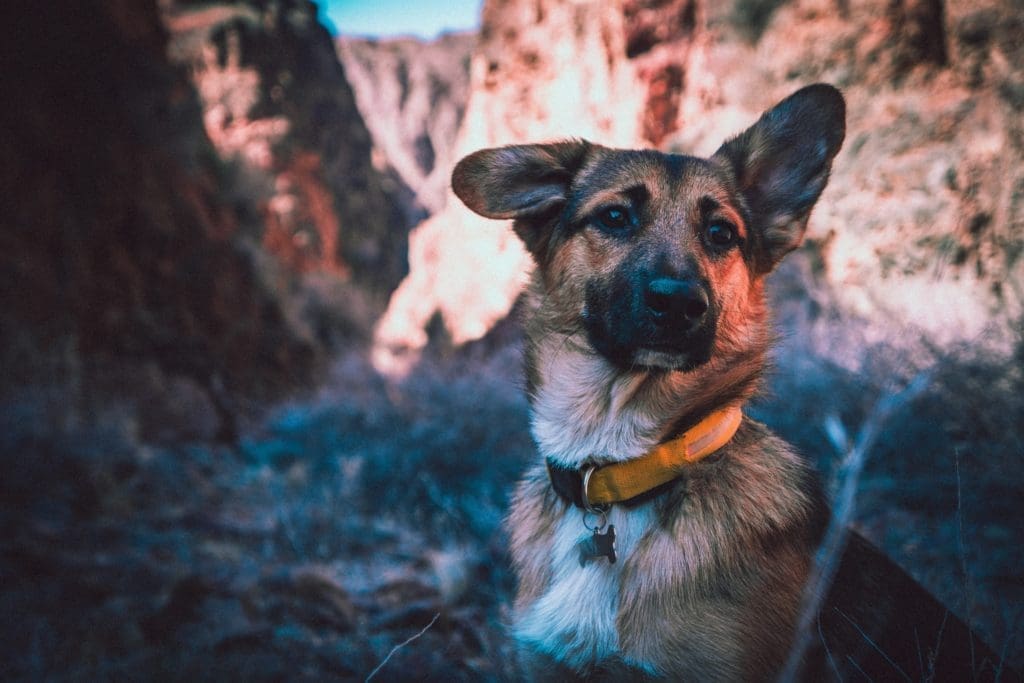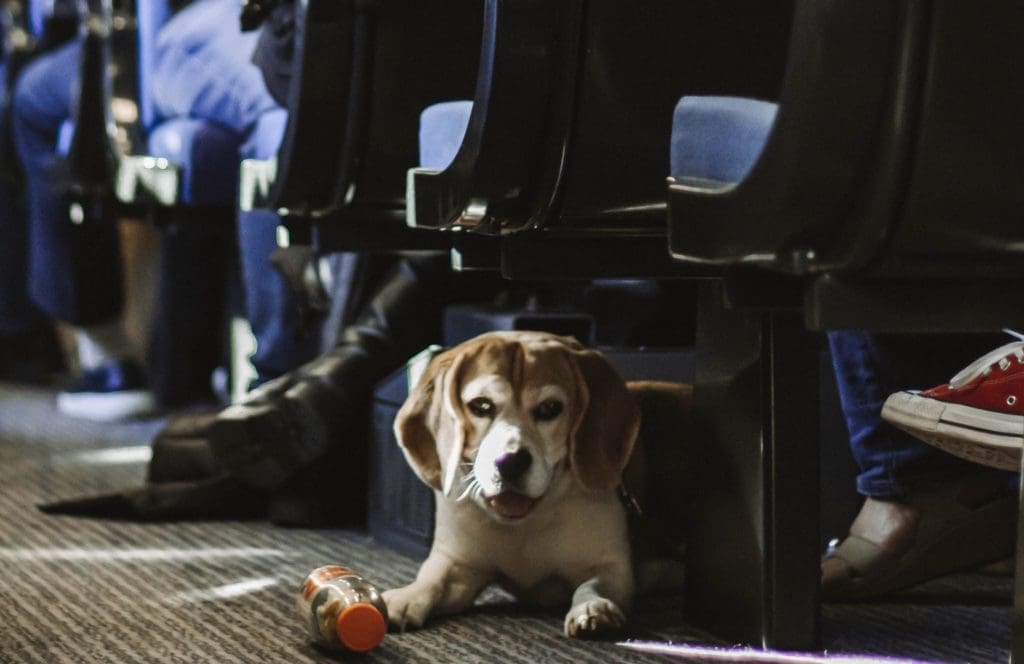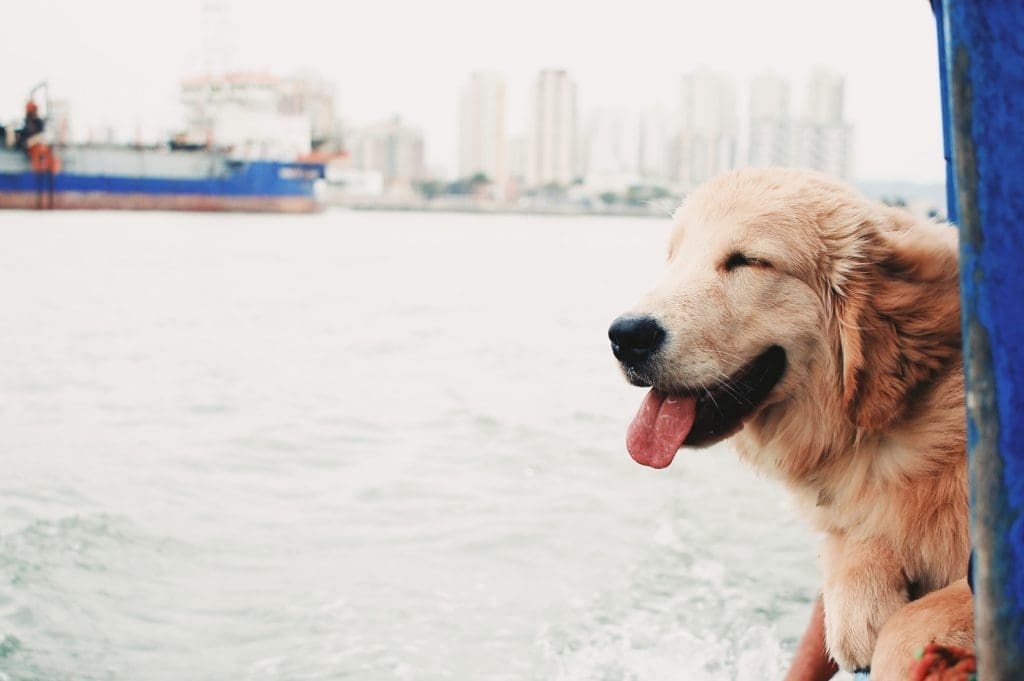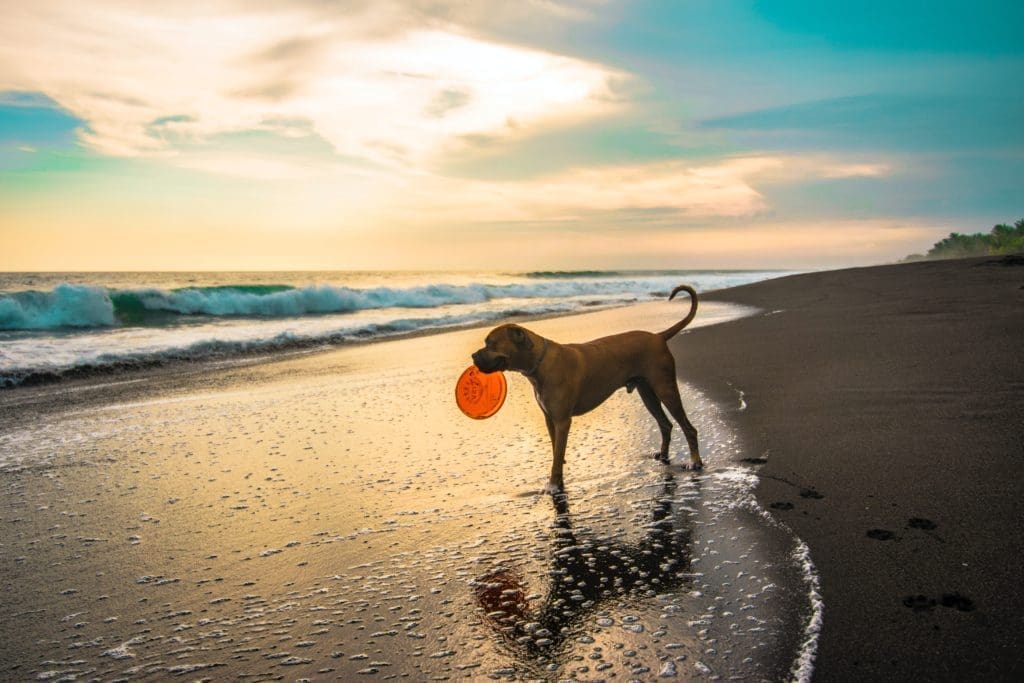Dog-Friendly Holidays In Australia
Destination
Dog-Friendly Holidays In Australia
When it comes to dog-friendly holidays, Australia stands out as a top choice. The country’s stunning coastline is home to numerous beaches that allow dogs to roam freely and enjoy the sand and surf. From popular spots like Bondi Beach in Sydney to the picturesque St. Kilda Beach in Melbourne, there are plenty of opportunities for your dog to have a blast while you soak up the sun.
Australia boasts a diverse range of hiking trails that welcome dogs. Whether you prefer coastal walks with breathtaking views or exploring the lush bushland, you’ll find plenty of options to satisfy your adventurous spirit.
Australia offers an abundance of dog-friendly holiday options that cater to the needs of both pet owners and their beloved dogs. From dog-friendly beaches and hiking trails to accommodations and pet-friendly cities, you’ll find everything you need for an incredible adventure with your furry friend. So why wait?
Table of Contents
ToggleTravelling To Australia From UK With A Dog
When traveling to Australia from the UK with a dog, there are specific requirements and specifications that you need to be aware of. These regulations are in place to ensure the health and safety of both the dog and the country’s biosecurity.
Rabies Vaccination: Australia is a rabies-free country, so it has strict regulations regarding the importation of dogs. Your dog must be vaccinated against rabies at least 180 days prior to travel. Make sure the vaccination is up to date and documented by a licensed veterinarian.
Microchipping: Your dog must be microchipped with a 15-digit ISO compliant microchip. Ensure that the microchip is implanted before any required blood tests or vaccinations.
Blood Tests: Your dog needs to undergo a blood test to check the effectiveness of the rabies vaccination. This test should be done at least 180 days after the vaccination. The blood sample should be tested in an approved laboratory, and the results should meet Australia’s import requirements.
Import Permit: Obtain an import permit from the Australian Department of Agriculture, Water and the Environment (DAWE). This permit should be applied for at least 180 days before the planned travel date.
Pre-Export Quarantine: Dogs coming from the UK are required to undergo a minimum of 10 days of pre-export quarantine in an approved country. The quarantine period should be spent in an approved facility, and the dog should have no contact with other animals during this time.
Documentation: You will need to gather all relevant documentation, including vaccination records, microchip details, blood test results, and the import permit. Make sure to keep copies of these documents both with you and attached securely to your dog’s travel crate.
Approved Airlines and Routes: Check with the airline you plan to fly with to ensure they accept dogs for travel to Australia. There are specific routes and airlines that are approved for transporting dogs to Australia, as they must comply with strict quarantine procedures upon arrival.
Quarantine Upon Arrival: Upon arriving in Australia, your dog will need to undergo quarantine for a minimum of 10 days at a government-approved quarantine facility. During this period, your dog will be monitored and checked for any signs of illness or disease.
It’s crucial to start planning and preparing for your dog’s travel well in advance, as the process can be lengthy and requires careful attention to detail. Ensure that you follow all the specific requirements and consult the official website of the Australian Department of Agriculture, Water and the Environment (DAWE) for the most up-to-date information and guidelines.

Popular Dog-Friendly Destinations In Australia
Australia is a vast and diverse country that offers plenty of dog-friendly destinations for you and your furry companion to enjoy. Here are some popular dog-friendly destinations in Australia:
Sydney, New South Wales: Sydney is a vibrant city with numerous parks, beaches, and walking trails where dogs are welcome. Visit the famous Bondi Beach, where there is an off-leash area for dogs to play in the sand and surf.
Melbourne, Victoria: Melbourne is known for its dog-friendly culture. The city has many off-leash parks and dog-friendly cafes where you can enjoy a meal with your pup. Take a stroll along St Kilda Beach or explore the Royal Botanic Gardens together.
Brisbane, Queensland: Brisbane offers several off-leash parks and dog-friendly areas, including the popular New Farm Park and the South Bank Parklands. You can also take your dog for a swim at Nudgee Beach or enjoy a picnic at Daisy Hill Conservation Park.
Perth, Western Australia: Perth has several dog-friendly beaches, such as Cottesloe Beach and Trigg Beach, where dogs are welcome off-leash during designated times. Kings Park and Bold Park also offer beautiful walking trails for you and your furry friend.
Adelaide, South Australia: Adelaide has several off-leash parks and dog-friendly beaches, including Henley Beach and Semaphore Beach. Take your dog for a walk along Linear Park or explore the Adelaide Hills together.
Hobart, Tasmania: Hobart offers various dog-friendly walking tracks, such as the Knocklofty Reserve and the Royal Tasmanian Botanical Gardens. Dogs are also allowed on several beaches, including Nutgrove Beach and Seven Mile Beach.
Traveling Across Australian States with a Dog
When traveling between Australian states with a dog, it’s important to be aware of the current regulations, as they can change periodically. The Australian Interstate Quarantine website provides the latest rules, which are available for download in a PDF format.
As of now, there are no restrictions for traveling across state borders with a cat. However, if you’re planning to travel to Tasmania with a dog, there is a specific requirement that must be fulfilled. Prior to traveling to Tasmania, whether by the Spirit of Tasmania or by plane, your dog must be treated for the hydatid tapeworm within 14 days of entry. You can provide evidence of the treatment through an official statement from your veterinarian, a statutory declaration, or by presenting the pill packet and receipt. For further information, you can refer to the provided factsheet.
Additionally, due to the outbreak of tick-transmitted Ehrlichiosis disease in northern Australia, it is necessary to declare on the provided form that you have inspected your dog for ticks.
While there have been references to quarantine requirements for Western Australia in the past, currently there are no restrictions or quarantine procedures for pet dogs and cats traveling to WA. You can verify this information on the respective website.
It’s important to note that if you plan to travel to Australian territories located overseas, such as Norfolk Island or Christmas Island, there may be additional requirements that apply.
Please ensure you check the latest guidelines and regulations on the Australian Interstate Quarantine website before you travel, as they may change over time.
Road Tripping Across Australia with a Dog
When it comes to road tripping across Australia with your dog, renting a car is often the best choice for traveling. Car rental services provide several advantages, including flexibility, convenience, and the ability to cater to your pet’s needs.
Car rental companies such as Budget Car Rental, Hertz Car Rental, Europcar, Thrifty Car Rental, and Avis Car Rental offer a range of vehicles suitable for road trips. These companies typically have pet-friendly policies, allowing dogs in their vehicles, although specific guidelines and fees may apply. It’s important to review each company’s pet policy and inquire about any restrictions based on breed or size.
Renting a car gives you the freedom to plan your itinerary according to your preferences and make spontaneous stops along the way. You can explore pet-friendly accommodations, scenic drives, national parks, and dog-friendly attractions that may not be easily accessible by public transportation.
During the trip, pack essential items for your dog, including food, water, bowls, bedding, toys, and any necessary medications. It’s also important to ensure your dog is secured safely in the car, either with a harness, crate, or other appropriate restraints.
Additionally, familiarize yourself with the local laws and regulations regarding traveling with pets in Australia, such as leash requirements and restrictions on certain breeds. Adhering to these laws ensures a smooth and lawful trip.
Overall, renting a car from a reputable car rental service provides the convenience, comfort, and freedom to embark on a memorable road trip across Australia with your furry companion.

Long-Distance Transport in Australia with a Dog
When traveling long distances in Australia with your dog, you have several transportation options to consider: train, bus, and airplane. Here’s an overview of each mode of transport:
Train Travel: Train travel in Australia can be a scenic and comfortable option for long distances. However, it’s important to note that dogs are generally not permitted on passenger trains, except for certified assistance dogs. If your dog qualifies as a certified assistance animal, you may be allowed to travel with them on certain train services. It’s recommended to check with the specific train operator for their policies and requirements.
Bus Travel: Bus travel can be a viable option for long-distance journeys within Australia. However, the policies regarding traveling with pets can vary among bus companies. Most bus operators do not allow dogs, except for certified assistance animals. It’s essential to check with the bus company beforehand to determine their specific guidelines and any documentation required for assistance dogs.
Airplane Travel: Air travel is commonly used for long-distance transport in Australia, and it’s possible to travel with your dog on domestic flights. However, each airline has its own policies and regulations regarding pet travel, including restrictions on dog breeds, size, and weight. It’s crucial to review the airline’s pet policy and make the necessary arrangements in advance.
Cabin Travel: Some airlines allow small dogs to travel in the cabin with their owners, typically in an airline-approved carrier that fits under the seat. There may be limitations on the number of pets allowed in the cabin, so it’s important to make reservations early and inform the airline about your intention to travel with your dog.
Cargo Travel: If your dog doesn’t meet the requirements for cabin travel, they may need to be transported as cargo. This involves traveling in a specially designed crate in the cargo hold of the airplane. It’s important to ensure that the crate meets the airline’s guidelines for size, ventilation, and security. Additionally, you should consult with your veterinarian to ensure your dog is fit for air travel and consider any potential stress or health risks associated with cargo travel.

Local Transport in Australia with a Dog
When it comes to local transport within Australia with your dog, there are various options available to help you navigate cities and towns. Here are some examples of local transportation modes and their pet policies:
Trains: In many cities, dogs are not permitted to travel on regular passenger trains, with the exception of certified assistance dogs. However, some cities have specific pet-friendly train services. For instance, in Melbourne, Victoria, the Puffing Billy Railway allows well-behaved dogs on their heritage steam trains. It’s important to check with the local train operator or transport authority for their specific policies.
Buses: Local buses in Australia typically have restrictions on traveling with pets, except for certified assistance animals. However, there are a few exceptions. For example, Brisbane City Council’s bus services allow dogs on board if they are in an appropriate carrier or restrained on a lead. Some regional bus services may also have pet-friendly policies. It’s advisable to check with the local bus operator or transport authority for their guidelines.
Ferries: Many ferry services in Australia allow dogs on board, although specific rules may apply. For instance, Sydney Ferries permits dogs on their vessels, provided they are on a leash and muzzled if required by local regulations. The guidelines may vary depending on the ferry operator and the particular route. It’s recommended to inquire about their pet policies before boarding.
Taxis and Rideshares: Taxis and rideshare services in Australia have varying policies regarding traveling with dogs. Some taxis may allow dogs, while others may have restrictions or require the use of a pet carrier. Rideshare services like Uber and DiDi also have guidelines regarding pets, which can differ between cities. It’s advisable to check with the specific service provider or driver before booking a ride.
Walking and Cycling: Walking and cycling can be great ways to explore local areas with your dog. Most cities and towns in Australia have sidewalks, footpaths, and designated walking trails where you can take your dog for a stroll. Dog-friendly parks and off-leash areas are also common, providing opportunities for exercise and socialization. Remember to follow local leash laws and clean up after your dog.

Dining Out in Australia with a Dog
Dining out in Australia with your dog is a popular trend, and many restaurants and cafes now welcome four-legged guests. Here are a few examples of establishments that offer dog-friendly dining experiences:
Three Blue Ducks, Sydney, New South Wales: Located in Bronte, Sydney, Three Blue Ducks is known for its relaxed atmosphere and delicious farm-to-table dishes. They have a dog-friendly courtyard where you can enjoy a meal while your furry friend lounges by your side. They even provide water bowls for dogs.
The Grounds of Alexandria, Sydney, New South Wales: The Grounds of Alexandria is a vibrant and popular dining destination in Sydney. This sprawling urban oasis features cafes, restaurants, and beautifully landscaped gardens. They have a dog-friendly seating area where you can enjoy their diverse menu and specialty coffee while your dog can socialize with other pups.
The Hardware Société, Melbourne, Victoria: Located in the heart of Melbourne, The Hardware Société is a charming French-inspired cafe that allows dogs in their outdoor seating area. They serve delectable breakfast and brunch options, including their famous baked eggs and croissants. It’s the perfect spot to enjoy a meal with your dog before exploring the city.
The Doghouse, Canberra, Australian Capital Territory: As the name suggests, The Doghouse in Canberra is designed with dogs in mind. This unique establishment offers a dedicated space where dogs are welcome to join you while you grab a bite to eat or enjoy a drink. They even have a dog-friendly menu, including treats and refreshing drinks for your pup.
The Naked Duck, Gold Coast, Queensland: Situated in Mermaid Waters, Gold Coast, The Naked Duck is a dog-friendly cafe that specializes in all-day breakfast and brunch options. They have a spacious outdoor seating area where dogs are welcome, and they provide water bowls to keep your furry friend hydrated while you indulge in their delicious menu offerings.
Dog-Friendly Accommodation in Australia
When planning a trip to Australia with your dog, finding dog-friendly accommodation is essential. Fortunately, there are many options available throughout the country that welcome four-legged guests. Here are some examples of dog-friendly accommodation types you can consider:
Hotels and Resorts: Several hotels and resorts in Australia cater to travelers with dogs. These establishments often have designated pet-friendly rooms or floors where you can stay with your furry companion. Some hotels even provide amenities such as dog beds, bowls, and treats. It’s recommended to inquire about their pet policy, any size restrictions, and additional fees before making a reservation.
Vacation Rentals: Renting a vacation home, cottage, or apartment is another excellent option for dog-friendly accommodation. Websites and platforms like Airbnb and Stayz allow you to filter your search to find properties that specifically welcome pets. Renting a private vacation rental gives you more flexibility and space for your dog to relax and feel at home during your stay.
Caravan Parks and Campgrounds: If you’re traveling with a camper or caravan, many caravan parks and campgrounds in Australia allow dogs. These locations often provide dedicated dog-friendly sites or areas where you can set up camp. It’s advisable to check the specific park’s rules regarding dogs, including any leash requirements or restrictions on certain breeds.
Pet-Friendly Cottages and Cabins: There are numerous pet-friendly cottages and cabins scattered throughout Australia’s beautiful countryside. These accommodations offer a cozy and secluded environment for you and your dog to enjoy. Whether nestled in the mountains, by the beach, or in the bushland, pet-friendly cottages and cabins provide a peaceful retreat for you and your furry friend.
Pet-Friendly Motels and Motor Inns: When embarking on a road trip, pet-friendly motels and motor inns can be a convenient option. These accommodations often offer basic amenities and are located near major highways or popular tourist destinations. It’s advisable to contact the specific motel or motor inn in advance to confirm their pet policy and any restrictions.

Dog-Friendly Sightseeing in Australia
Australia offers a wide range of dog-friendly sightseeing opportunities, allowing you to explore the country’s natural beauty and iconic landmarks alongside your furry companion. Here are some dog-friendly sights and activities to consider:
National Parks: Australia is renowned for its stunning national parks, many of which welcome dogs. Before visiting a national park, it’s important to check the park’s regulations and guidelines regarding dogs. Some parks allow dogs on designated walking trails and picnic areas, while others may have restrictions or require dogs to be on a leash. National parks like Royal National Park in New South Wales and Wilsons Promontory National Park in Victoria offer dog-friendly options.
Dog-Friendly Beaches: Australia boasts an extensive coastline with numerous dog-friendly beaches where your pup can run, swim, and play. Different beaches have varying regulations, so it’s important to research and follow local rules. Some popular dog-friendly beaches include Rose Bay Beach in Sydney, St. Kilda Beach in Melbourne, and Noosa Dog Beach in Queensland.
Coastal Walks: Many coastal towns and cities in Australia offer picturesque walking trails along the waterfront, allowing you to enjoy scenic views with your dog. Bondi to Coogee Coastal Walk in Sydney, The Great Ocean Walk in Victoria, and the Bondi to Bronte Walk in Sydney are a few examples of dog-friendly coastal walks.
Dog-Friendly Cafes and Restaurants: Numerous cafes and restaurants throughout Australia provide dog-friendly seating areas, allowing you to enjoy a meal or a cup of coffee with your dog by your side. These establishments often have outdoor seating and may provide water bowls for dogs. Research dog-friendly cafes and restaurants in the area you plan to visit to find the perfect spot to relax and refuel.
Off-Leash Dog Parks: Cities and towns across Australia have designated off-leash dog parks where your furry friend can socialize, exercise, and have fun. These parks often feature fenced areas, agility equipment, and water stations for dogs. Some popular off-leash parks include Centennial Parklands in Sydney, Albert Park in Melbourne, and Kings Park in Perth.

Using Kennels & Dog-Sitters in Australia
When you need to leave your dog behind while traveling or attending to other commitments in Australia, there are options available to ensure your furry friend is well taken care of. Two common choices are kennels and dog-sitters. Here’s what you need to know about using these services in Australia:
Kennels: Kennels are facilities specifically designed to provide temporary accommodation for dogs. They offer a safe and controlled environment where your dog can stay while you’re away. When choosing a kennel, consider the following:
- Reputation and Reviews: Research and read reviews about different kennels to gauge their quality and level of care.
- Facility and Amenities: Visit the kennel beforehand, if possible, to assess the cleanliness, security, and the size of the dog’s living space. Check if they provide proper bedding, food, and water.
- Exercise and Socialization: Inquire about the amount of exercise and playtime the dogs receive and whether there are opportunities for social interaction with other dogs.
- Vaccination and Health Requirements: Ensure the kennel requires up-to-date vaccinations and ask about their policies on handling emergencies or medical issues.
- Booking in Advance: Kennels can have limited availability, especially during peak seasons, so make reservations well in advance.
Dog-Sitters: Dog-sitters are individuals who take care of your dog in their own home or visit your home to care for your dog. Hiring a dog-sitter provides a more personalized and familiar environment for your dog. Consider the following when choosing a dog-sitter:
- Experience and References: Look for dog-sitters who have experience in caring for dogs and ask for references from previous clients.
- Compatibility: Arrange a meeting between the dog-sitter and your dog to ensure a good rapport and compatibility.
- Trust and Reliability: Choose a dog-sitter who is reliable, trustworthy, and committed to providing the necessary care and attention your dog needs.
- Insurance and Emergency Plans: Inquire about the dog-sitter’s insurance coverage and their protocols in case of emergencies or unexpected situations.
- Clear Instructions: Provide clear instructions regarding your dog’s routine, dietary needs, exercise requirements, and any medical conditions.
It’s important to thoroughly research and interview potential kennels or dog-sitters to find a trustworthy and suitable option for your dog’s well-being. Seek recommendations from friends, family, or local pet communities for reliable providers.
How Dog-Friendly Is Australia?
Are dogs allowed in public places in Australia?
The regulations regarding dogs in public places can vary between different states and territories in Australia. However, most areas have designated off-leash areas, parks, and beaches where dogs are allowed. In some public places, dogs must be on a leash and under control at all times.
Can I take my dog on public transportation in Australia?
The rules regarding dogs on public transportation vary across different states and territories. Generally, small dogs in carriers or assistance dogs are allowed on public buses, trains, and ferries. However, larger dogs usually require a muzzle and leash, and some modes of transportation may have restrictions during peak hours.
Are there any dog parks or off-leash areas in Australia?
Yes, Australia has numerous dog parks and off-leash areas where dogs can socialize, exercise, and play off-leash. These areas are typically fenced and provide a safe environment for dogs. The availability and regulations of off-leash areas can vary depending on the local council or region, so it's recommended to check the specific rules in your area.
What are the quarantine requirements for bringing a dog to Australia?
Australia has strict quarantine requirements to prevent the introduction of diseases. If you plan to bring your dog to Australia from another country, you will need to comply with the country's import regulations, including pre-entry veterinary procedures, quarantine periods, and necessary documentation. The Australian Department of Agriculture, Water and the Environment provides detailed information on importing pets
